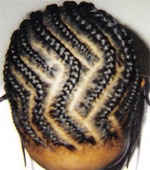Snippet from the study abstract:
BACKGROUND: Few studies have extensively examined the prevalence of hair care practices and their association with scalp and hair conditions in African American girls.
OBJECTIVES: We sought to determine the prevalence of hair care practices and their association with traction alopecia, seborrheic dermatitis (SD), and tinea capitis (TC).
METHODS: A questionnaire was administered to caregivers of African American girls aged 1 to 15 years. Multivariate analyses were performed to determine the association of hair care practices with reported disorders.
 Read the rest — Hair care practices and their association with scalp and hair disorders in African American girls.
Read the rest — Hair care practices and their association with scalp and hair disorders in African American girls.
201 surveys were sent out to caregivers of African American girls aged 1 to 15 years to look for links between traction alopecia, ringworm, and seborrheic dermatitis. Almost all of the respondents used oil/grease in the hair, and a substantial number used ponytails, braids, or cornrows. The results were published in the Journal of the American Academy of Dermatology.
The study concluded: “Certain hair care practices were strongly associated with development of traction alopecia and SD.” The situation of traction alopecia in women of African decent is epidemic in Western society. Many, many women have ruined their hair and developed significant balding from the various ways they went about managing their kinky hair.
Tags: african, hairloss, hair loss, traction alopecia, black hair, african hair, african american

 Read the rest —
Read the rest —